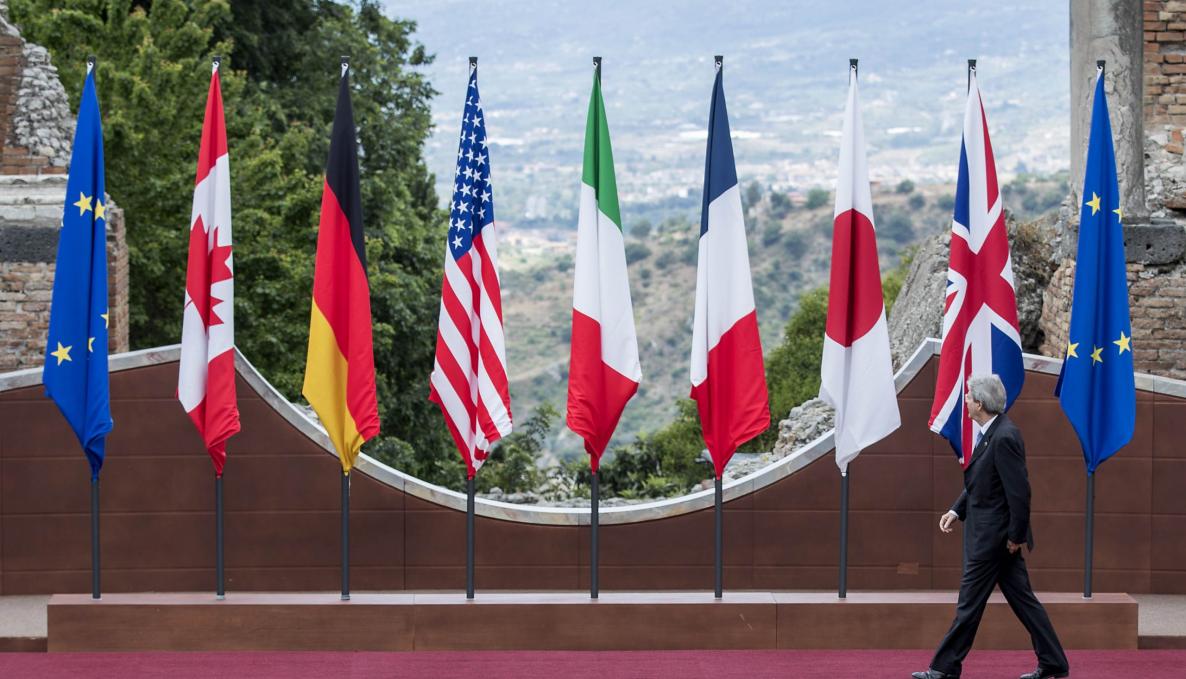G7 YOUTH SUMMIT: GIULIA BOSI, DOCTORAL CANDIDATE IN HUMAN RIGHTS AT SANT'ANNA SCHOOL, WAS SELECTED AS ONE OF THE FOUR ITALIAN "YOUNG AMBASSADORS" (WITH MANDATE ON HEALTH) AFTER WINNING A CALL FOR APPLICATIONS FROM THE MINISTRY OF FOREIGN AFFAIRS

Psychological wellbeing, plastic pollution, online safety and combating unemployment are the priorities felt by the majority of young Italians aged between 14 and 35 who answered the questionnaire carried out between March and April 2021 in the context of the G7 Youth Summit, the official youth engagement group for the G7 made up of young delegates from the relevant countries. On the basis of what will be discussed at the G7 this year, the areas on which the G7 Youth has focused are in fact Climate & Environment, Digital, Economy and Health. With regard to this last area, mental health and psychological wellbeing came first for young Italians, as well as for most of their peers from the other G7 countries.
The results of the Italian questionnaire, together with those of the other delegations, formed the starting point for the drafting of the recommendations that will be handed over to the G7 leaders ahead of their meeting in Cornwall between 11 and 13 June. These recommendations, the purpose of which is to represent the demands of young people in the G7 countries, were made public at the final G7 Youth Summit, where Giulia Bosi was selected to represent Italy in the capacity of health delegate. She is a PhD Candidate in Human Rights and Global Politics, the doctoral programme lead by Barbara Henry, professor of political philosophy at the Dirpolis Institute (Law, Politics, Development). Giulia Bosi was chosen to represent our country together with three other young people (four in total). The Young Ambassadors Society, in collaboration with the Italian Government and the Ministry of Foreign Affairs and International Cooperation, selected from hundreds of applications - in addition to Giulia Bosi - the delegates Rachele De Angelis, Fabio Boniolo and Tullio Ambrosone, respectively for the areas of Environment, Technological Innovation and Economics.
A total of 2,707 young people between the ages of 14 and 35 responded to the G7 Youth "public consultations" in Italy, i.e. the questionnaire drawn up by the Italian delegation. “We, the Italian delegates”, Giulia Bosi explains, “circulated a questionnaire and contacted youth organisations and associations. Receiving 2707 responses in less than two months, seems to be already an explicative datum in itself: young people in Italy want to make their voice heard”.
The questionnaire was anonymous and was disseminated mainly through social media and youth associations. Most of the respondents have an age between 14 and 19 (39%), followed by the 20-24 age group (35%), 25-29 (21%), and finally 30-35. Therefore, it is not surprising that 79% of respondents defined themselves as students in answering the question on their current occupation. As for the geographical distribution, 56% of the participants come from Northern Italy and the remaining 44% are equally distributed between the Centre, the South and the islands.
Giulia Bosi comments: “The fact that the lowest age group that has been the most reactive one is striking. I guess this happened because adolescents fear for their future, having been one of the groups most affected by the pandemic. The last year and a half cannot be erased, nor can the consequences it will bring in the coming decades. But these data show that we can turn this historic moment into an opportunity, an occasion for young people to be more interested in politics and for institutions to take their point of view more into account”.
For the area of Health, mental health/psychological wellbeing, social determinants of health and the distribution and availability of vaccines were prioritised by Italian youth over other topics such as pandemic preparedness, increase in non-communicable diseases, digital health, antimicrobial resistance, substance use, and sexual and reproductive health. In the other fields surveyed, the 'ranking' of priorities for young Italians is as follows. Environment: plastic pollution, air pollution, use of fossil fuels. Technological Innovation: online security, control of potential sources of misinformation and disinformation, development of new technologies (AI, 5G, cryptocurrencies...). Economy: combating unemployment in general and youth unemployment in particular, combating inequalities (social, economic, geographical), ecological transition.
Once the “public consultations” were over, the delegations from the various countries negotiated among themselves the Recommendations, which will be handed over to the political leaders ahead of the next G7 in a single document, called Communiqué. “Among its key points”, explains Giulia Bosi, “there are climate resilience, digital literacy, sustainable economy and mental health. In particular, we have asked the G7 leaders to strengthen global early warning systems through climate stress-testing and knowledge-sharing on adaptation measures; to achieve universal connectivity by 2030 worldwide and to embed digital literacy in all curricular areas; to incorporate the impact on future generations into budget decisions by jointly developing indicators of economic performance that supplement GDP with integrated well-being, sustainability, and inclusivity outcome. And finally, to give greater prominence to mental health in primary care and in the places where psychological support is most accessible to young people, i.e. at school, university and in the workplace”.
Giulia Bosi concludes: “Beyond the specific requests, what emerges from the Communiqué is that now more than ever politics (both national and international) should take into account the question: what impact will this decision have on future generations? Having this intergenerational perspective at the institutional level, a perspective that aims to meet the needs of the present without compromising the ability of future generations to meet their own needs, is not as impractical as it might seem. A good example in this regard could be Wales, where the position of the Commissioner for Future Generations was created a few years ago with the aim to help public bodies and politicians to think about the long-term consequences of their decisions. This is what we are asking to the G7 2021: to look to the future as well”.



